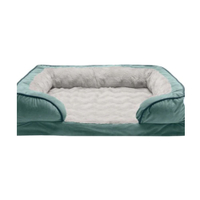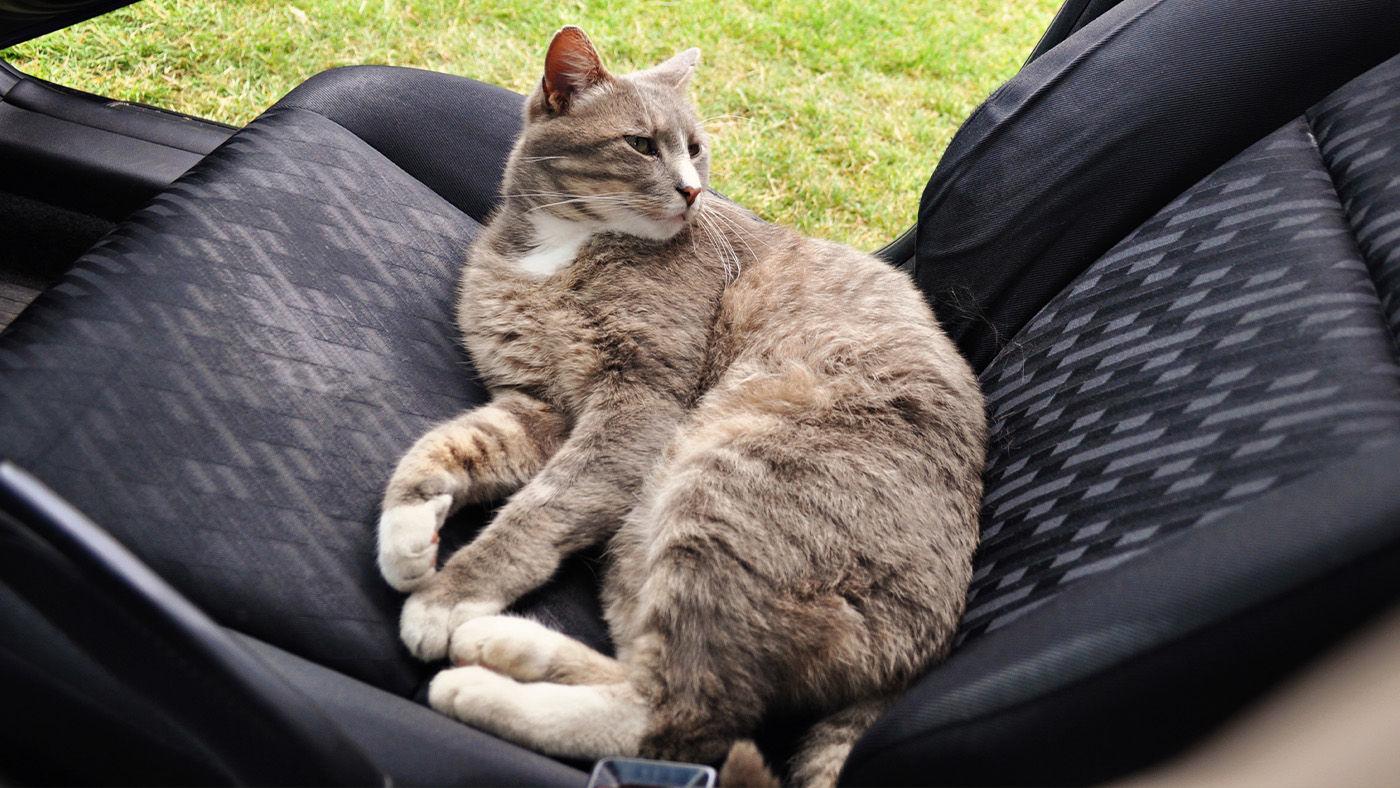7 behavioral changes in elderly dogs, and what you can do about them
Is your pooch getting older? We asked a behaviorist what to expect.
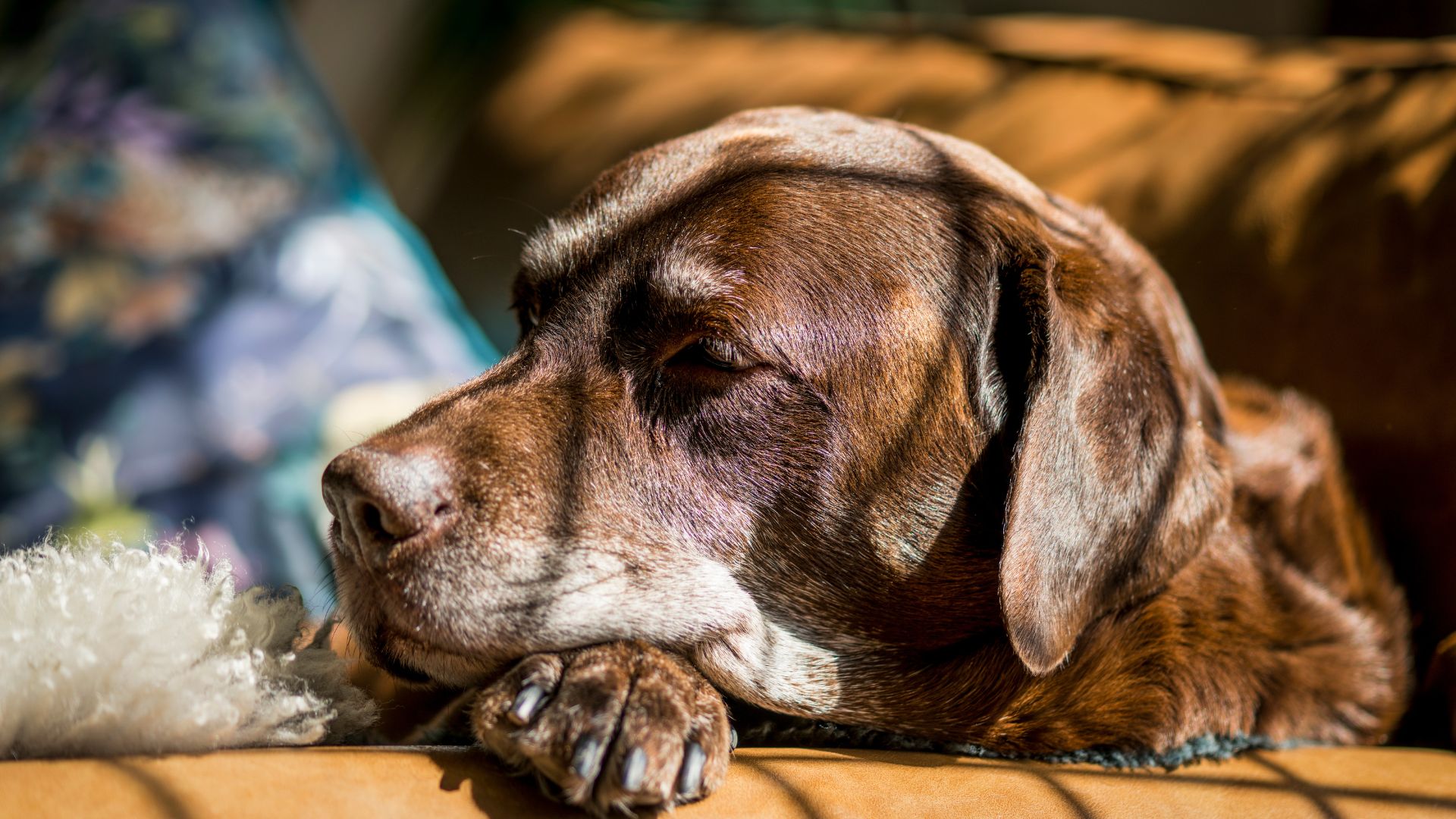
You may notice the physical signs of aging when your dog’s muzzle goes gray. Perhaps your dog isn’t as bouncy on walks and sleeps longer during the day. Still, along with the physical changes, there are often multiple behavioral changes in older dogs, and they can be tricky to manage if you aren’t prepared.
I’m a qualified dog behaviorist lucky to have shared my life with 10 dogs since I was fourteen. Over the years, I’ve recognized subtle differences in my dog’s behavior as they age. You may have already invested in one of the best orthopedic dog beds, but understand behavior changes are another thing altogether.
My oldest dog, Cassie, a whippet/labrador, lived to the grand age of 16.5! She was fit and active until the last month of her life when she stopped wanting to eat.
I am happy to pass on my top 7 tips to help you understand your elderly dog’s behavioral changes so you are better prepared for his twilight years.
1. Different sleeping patterns
As your dog ages, you may notice a change in his sleep cycles. He may sleep more during the day and sleep heavier after exercise. Another issue that can arise is waking up during the night and displaying restlessness.
Sleeping more is a natural sign of aging in dogs and humans, but a restless sleep cycle could indicate a health issue.
There are three possible reasons for your dog waking in the night:
PetsRadar Newsletter
Get the best advice, tips and top tech for your beloved Pets
- Declining cognitive function
- Pain or discomfort
- Needing to go to the bathroom
With all three, the best decision is to visit your vet to check what might be causing the sleep disruption.
2. Irritable or aggressive behavior
Has your dog become grumpy in his old age? If so, it’s not unusual behavior for an elderly dog. The priority is to identify what is causing the change. Have you noticed a decline in his mobility? If so, his grumpiness could be pain-related. If your dog has poor hearing or eyesight, sudden noises or movement could startle him.
Always supervise time together if you have another dog or a young child. A young dog jumping on him may trigger growling or snapping if he is in pain.
FurHaven Velvet Waves Perfect Comfort Orthopedic Sofa Cat & Dog Bed at Chewy
The orthopedic foam base on this bed supports your dog’s joints. It provides a pawfect headrest and snuggle haven with its supportive wrap-around bolsters.
If your elderly dog has an accident, no problem. Whip off the zipped cover and throw it into the washing machine, and your dog will soon be sleeping cozy and snug again.
3. Accidents in the house
Your dog may have an exemplary record for house training, but as he ages, he may have the odd accident. Please don’t scold your dog because it’s likely he cannot help it. It’s advisable to visit your vet to check the cause. It could be a urinary tract infection, kidney disease, gastrointestinal or mobility issues, or neurological.
If your dog has urinary incontinence, you can find doggy wear that looks like a diaper. They work exceptionally well. Cassie was 100% urinary incontinent for a few months before she passed, and the doggy diapers were effective for protecting her bed, the carpet and furniture.
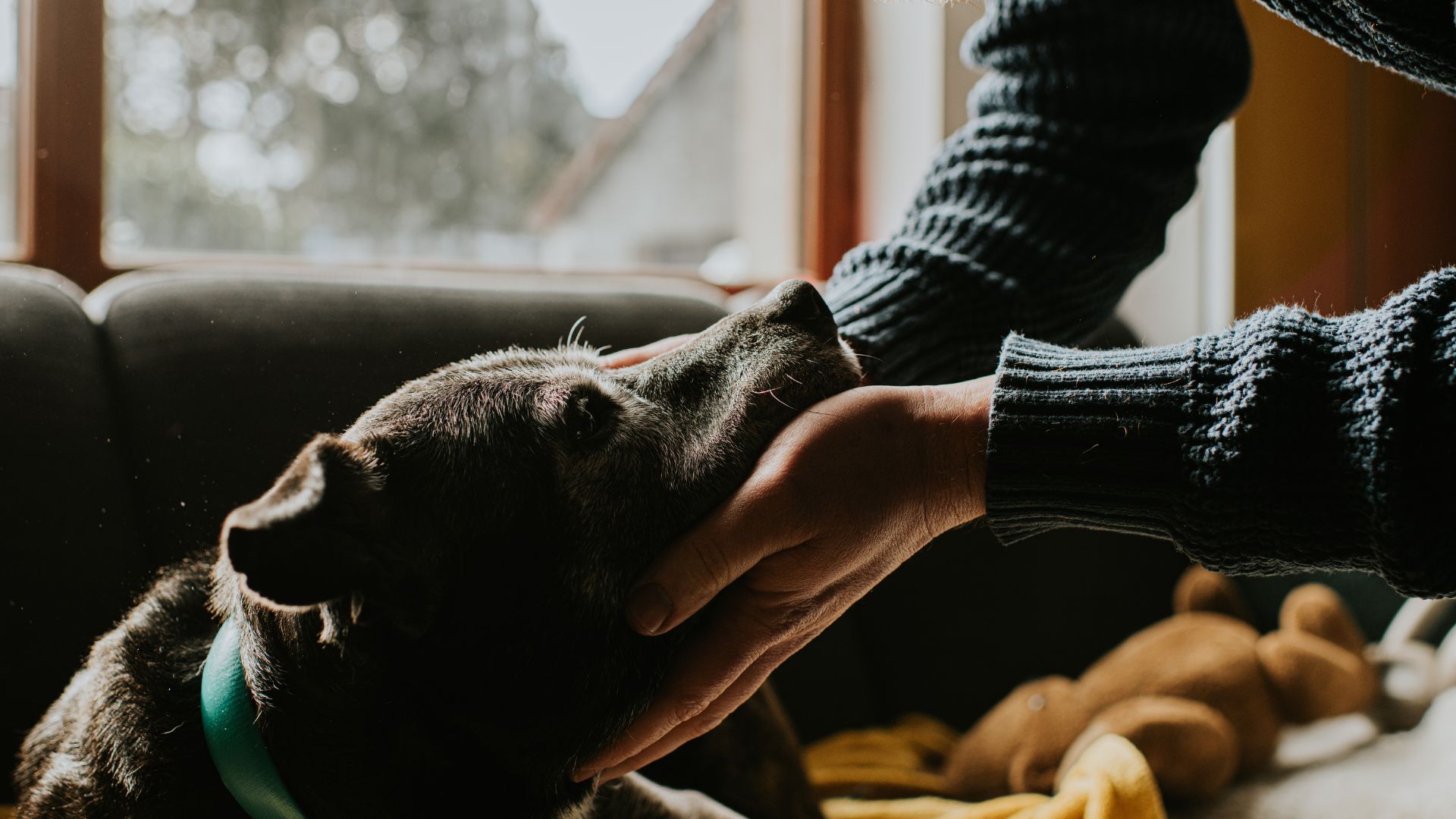
4. Your dog seems confused and disorientated
My Shetland Sheepdog, Carrie, lived to 14.5. For the last two months of her life, she suffered from canine cognitive dysfunction, like doggie dementia. She seemed confused and disorientated.
Carrie started whining in the middle of the night and, when I checked on her, had her head in a corner and couldn’t figure out how to reverse. My vet confirmed she had neurological issues arising from old age.
You may notice your elderly dog doing some or all of the following:
- Pacing
- Anxiety
- Staring into space
- Not recognizing you
- Obsessive behaviors
- Disliking a change in routine
- Forgetting familiar walks or where to go to the bathroom
- Forgetting commands that he’s known since he was a puppy
- Not knowing where his food bowl is even if you hold it in front of him
Although these behavioral changes seem distressing, work with your vet to assess if medication would help. Allow your dog to take his time and try to establish a routine to reduce his stress.
5. Separation anxiety
Your elderly dog may become clingy and worried when you aren’t in sight and may follow you around the house. Your dog may stay closer on walks and get into the habit of standing in your way.
In some cases, declining eyesight, lack of mobility, or poor hearing could be the cause. Of course, there are times when you must leave your dog behind, but try to establish a routine so he feels more comfortable. Take him on a short walk before you go out so he is tired and is more likely to sleep.
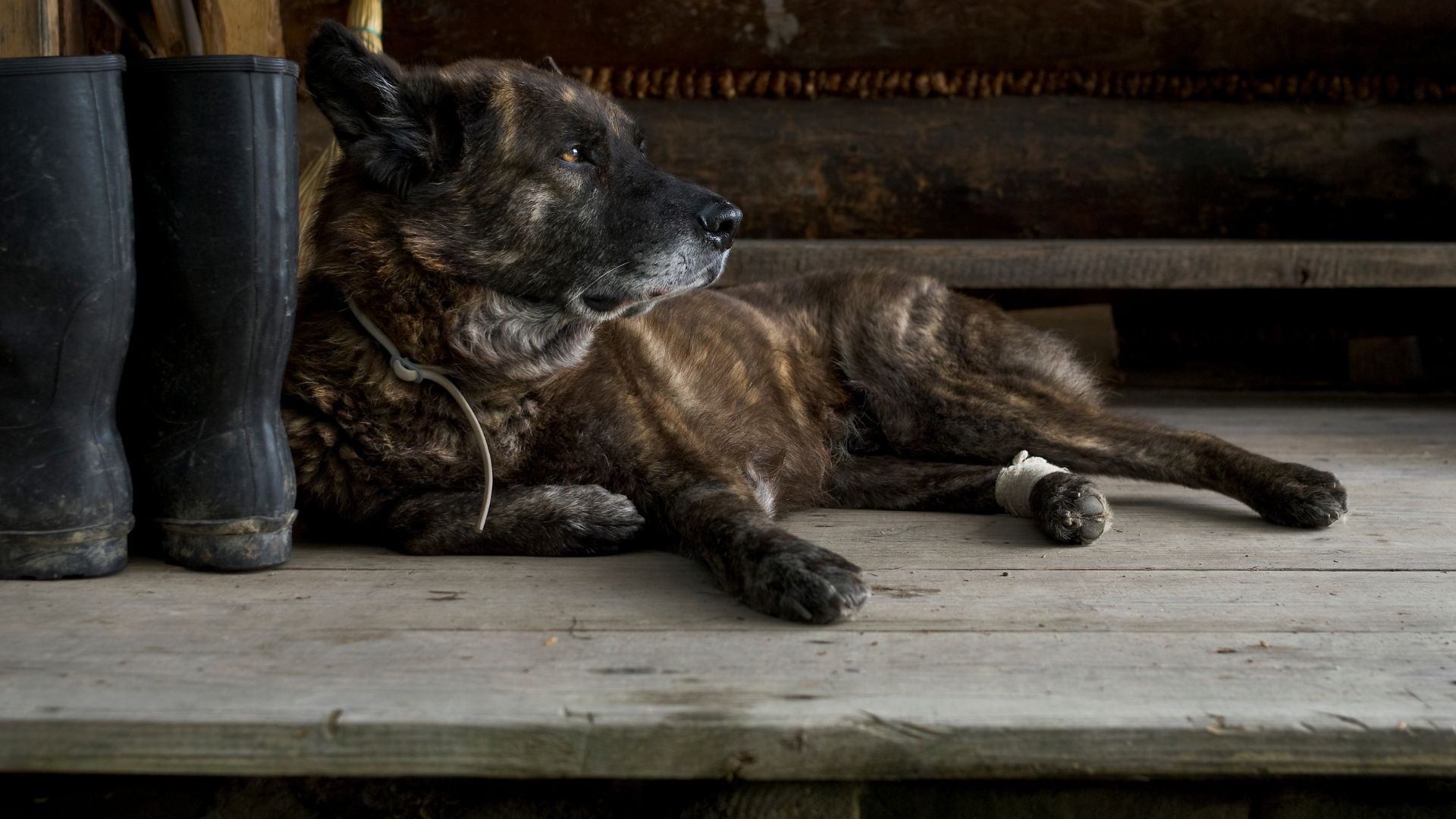
6. Noise phobias
Do you remember when your dog eagerly jumped up to check the fly that landed on the windowsill, neighbors walking by, and children playing outside?
As your dog ages and mobility decreases, he may be more reluctant to get up to investigate noise sources. If his hearing is declining, the sounds may differ from what your dog is used to, which could cause him confusion. He may find sound more stressful and start whining or barking, which makes it seem like he’s become noise intolerant.
If you have a quiet room in the house, it may be less worrying for your dog if he cannot hear noises that trigger his behavior.
7. Your dog doesn’t want to go for a walk
When my dog, Ellie, a collie/labrador, was 14, she stopped wanting to walk with me and our three other dogs. If I put her on the lead and walked to the fields, she would refuse to move when I let her off the lead, no matter how far away we walked from her.
The vet could find no physical or neurological reason for her behavior. She wasn’t in pain. Ellie put down her paw and decided she was no longer interested in all that “young dog stuff.” I overcame this change in Ellie’s behavior by taking her with me to coffee shops and meeting friends with their dogs for a chat. Ellie seemed to enjoy that.
If your dog no longer wants to walk, the first step is to rule out pain or neurological concerns. In addition, manage your dog’s weight because that can be a factor in whether he enjoys his walks as much. If the vet rules out health issues, find creative ways to continue to give your dog quality of life.
Today, dogs are living much longer lives. Our dogs can enjoy a full active life into old age due to improved diets and veterinary care. Celebrate your senior dog. Adapt to the behavioral changes, consult your vet, and have many more happy years together.
Want more articles about elderly dogs? Here are eight signs your dog is getting old.

Jan is a dog behaviorist and writer living in the Cotswolds, UK. She has shared her life with dogs for over fifty years and is fascinated by behavior. She enjoys helping people better understand their dogs to develop a deep bond and enjoy time together. Jan particularly enjoys working with impulsive and reactive dogs as her legacy from helping Poppy, her rescue Weimaraner cross overcome fear reactivity.
